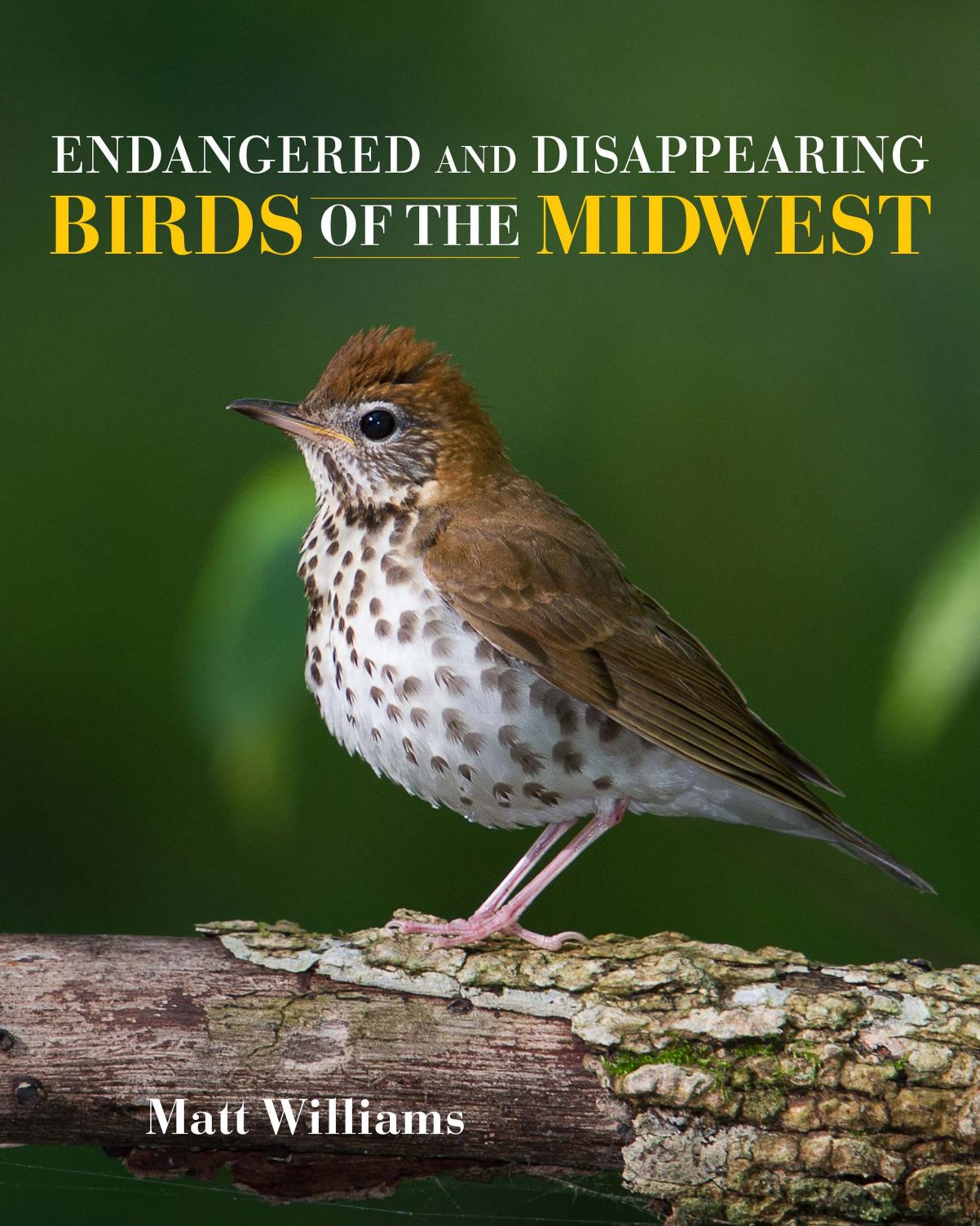Endangered and Disappearing Birds of the Midwest by Matt Williams

Author:Matt Williams
Language: eng
Format: epub, pdf
Publisher: Indiana University Press
Published: 2018-08-01T16:00:00+00:00
Bank Swallow, May, Indiana: Activity is high in a Bank Swallow colony, where nesting pairs are packed into close proximity with their neighbors. Chases and fights are common early in the nesting season.
With recent data coming to light regarding rapidly declining insect populations in the United States, Europe, and other places, it does seem logical that a bird like the Bank Swallow that feeds almost exclusively on airborne insects would be in decline, along with its prey populations. Neonicotinoids and other pesticides are often cited as one potential cause for the declines in honey bees, monarch butterflies, and legions of other less-high-profile insect species. A recent study from Germany documents an 80 percent decline in insect biomass over the past few decades. Many of the chemical components of neonicotinoids have been banned in much of Europe because of concerns about their unintended impacts on nontarget insect species and other life.
Identification. Males and females are impossible to separate in the field. Bank Swallows have brown backs and white underparts, with a brown band across the upper chest that separates the white throat from the white belly. Northern Rough-winged Swallows are similar in appearance but lack the brown chest band and have light-brown throats.
Vocalizations. A short, burry trit-trit, or harsh chattering.
Nesting. Bank Swallows typically lay four to five white eggs. Incubation and feeding duties are performed by both parents. The young birds will fledge from the nest within about three weeks of hatching.
Matt Williams
Download
Endangered and Disappearing Birds of the Midwest by Matt Williams.pdf
This site does not store any files on its server. We only index and link to content provided by other sites. Please contact the content providers to delete copyright contents if any and email us, we'll remove relevant links or contents immediately.
| Africa | Americas |
| Arctic & Antarctica | Asia |
| Australia & Oceania | Europe |
| Middle East | Russia |
| United States | World |
| Ancient Civilizations | Military |
| Historical Study & Educational Resources |
Cat's cradle by Kurt Vonnegut(15352)
Pimp by Iceberg Slim(14506)
4 3 2 1: A Novel by Paul Auster(12391)
Underground: A Human History of the Worlds Beneath Our Feet by Will Hunt(12097)
The Radium Girls by Kate Moore(12028)
Wiseguy by Nicholas Pileggi(5784)
The Fire Next Time by James Baldwin(5442)
Perfect Rhythm by Jae(5403)
American History Stories, Volume III (Yesterday's Classics) by Pratt Mara L(5307)
Paper Towns by Green John(5190)
Pale Blue Dot by Carl Sagan(5007)
A Higher Loyalty: Truth, Lies, and Leadership by James Comey(4962)
The Mayflower and the Pilgrims' New World by Nathaniel Philbrick(4502)
The Doomsday Machine by Daniel Ellsberg(4490)
Killers of the Flower Moon: The Osage Murders and the Birth of the FBI by David Grann(4447)
The Sympathizer by Viet Thanh Nguyen(4390)
Too Much and Not the Mood by Durga Chew-Bose(4348)
The Borden Murders by Sarah Miller(4325)
Sticky Fingers by Joe Hagan(4198)
